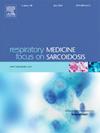Mental health and transplantation in cystic fibrosis
IF 3.1
3区 医学
Q2 CARDIAC & CARDIOVASCULAR SYSTEMS
引用次数: 0
Abstract
Background
People with cystic fibrosis (PWCF) and their caregivers may face the prospect of lung or liver transplantation as cystic fibrosis (CF) progresses. Despite the links between psychological distress, poor adherence and survival outcomes, their mental health needs may not be consistently addressed.
Methods
We conducted a narrative review of mental health aspects of transplantation in PWCF, including health-related quality of life (HRQoL), pre-transplant psychosocial evaluation, neuropsychiatric complications, and psychosocial and psychopharmacologic interventions.
Results
Depression, anxiety and post-traumatic stress are common in this population, along with neuropsychiatric complications including cognitive impairment, delirium, side effects of immunosuppression, and drug-drug interactions. CF-specific guidelines recommend routine screening for depression, anxiety, and unmet palliative care needs for PWCF throughout the lifespan. Peri-transplantation, systematic monitoring can modify risk factors for and identify and treat delirium. Guidelines recommend screening, evaluation, and referral to care for depression, anxiety, and PTSD within 6 months post-transplant for PWCF and caregivers. Mental health intervention studies indicate there is potential to improve depression, anxiety, HRQoL, and medical outcomes.
Conclusions
As CF progresses, patients and caregivers require preparation for the psychosocial aspects of transplant evaluation, including the salience of social support, treatment adherence, and the importance of early interventions for mental health and substance use disorders. Specialists in mental health, palliative care, and pain management can be enlisted to improve symptoms and functioning in PWCF and caregivers at all stages of the transplant process. Psychological and psychopharmacologic interventions may require adaptation to target the specific needs of PWCF with advanced disease.
囊性纤维化患者的心理健康与移植
背景:随着囊性纤维化(CF)的进展,囊性纤维化患者及其护理人员可能面临肺或肝移植的前景。尽管心理困扰、依从性差和生存结果之间存在联系,但他们的心理健康需求可能无法始终如一地得到解决。方法:我们对PWCF移植的心理健康方面进行了叙述性回顾,包括与健康相关的生活质量(HRQoL)、移植前社会心理评估、神经精神并发症以及社会心理和精神药物干预。结果:抑郁、焦虑和创伤后应激在这一人群中很常见,同时伴有神经精神并发症,包括认知障碍、谵妄、免疫抑制副作用和药物-药物相互作用。cf特定指南建议在整个生命周期中对PWCF进行抑郁、焦虑和未满足的姑息治疗需求的常规筛查。移植期,系统监测可以改变谵妄的危险因素,识别和治疗谵妄。指南建议在移植后6个月内对PWCF和护理人员进行筛查、评估和转介治疗抑郁症、焦虑症和创伤后应激障碍。心理健康干预研究表明,有可能改善抑郁、焦虑、HRQoL和医疗结果。结论:随着CF的进展,患者和护理人员需要为移植评估的社会心理方面做好准备,包括社会支持的重要性,治疗依从性,以及早期干预精神健康和物质使用障碍的重要性。可以招募心理健康、姑息治疗和疼痛管理方面的专家来改善PWCF患者的症状和功能,以及移植过程各个阶段的护理人员。心理和精神药理学干预可能需要适应针对晚期PWCF的特殊需求。
本文章由计算机程序翻译,如有差异,请以英文原文为准。
求助全文
约1分钟内获得全文
求助全文
来源期刊

Respiratory medicine
医学-呼吸系统
CiteScore
7.50
自引率
0.00%
发文量
199
审稿时长
38 days
期刊介绍:
Respiratory Medicine is an internationally-renowned journal devoted to the rapid publication of clinically-relevant respiratory medicine research. It combines cutting-edge original research with state-of-the-art reviews dealing with all aspects of respiratory diseases and therapeutic interventions. Topics include adult and paediatric medicine, epidemiology, immunology and cell biology, physiology, occupational disorders, and the role of allergens and pollutants.
Respiratory Medicine is increasingly the journal of choice for publication of phased trial work, commenting on effectiveness, dosage and methods of action.
 求助内容:
求助内容: 应助结果提醒方式:
应助结果提醒方式:


